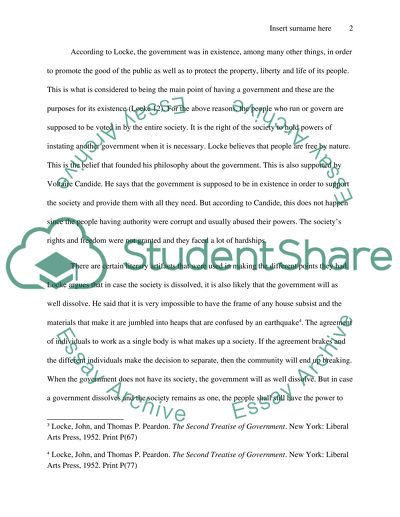Cite this document
(“John Locke Second Treatise on Government vs. Voltaire Candide Term Paper”, n.d.)
John Locke Second Treatise on Government vs. Voltaire Candide Term Paper. Retrieved from https://studentshare.org/history/1467797-john-locke-second-treatise-on-government-vs-voltaire-candide
John Locke Second Treatise on Government vs. Voltaire Candide Term Paper. Retrieved from https://studentshare.org/history/1467797-john-locke-second-treatise-on-government-vs-voltaire-candide
(John Locke Second Treatise on Government Vs. Voltaire Candide Term Paper)
John Locke Second Treatise on Government Vs. Voltaire Candide Term Paper. https://studentshare.org/history/1467797-john-locke-second-treatise-on-government-vs-voltaire-candide.
John Locke Second Treatise on Government Vs. Voltaire Candide Term Paper. https://studentshare.org/history/1467797-john-locke-second-treatise-on-government-vs-voltaire-candide.
“John Locke Second Treatise on Government Vs. Voltaire Candide Term Paper”, n.d. https://studentshare.org/history/1467797-john-locke-second-treatise-on-government-vs-voltaire-candide.


